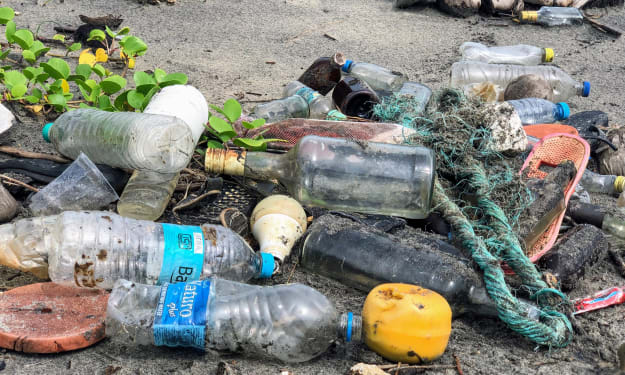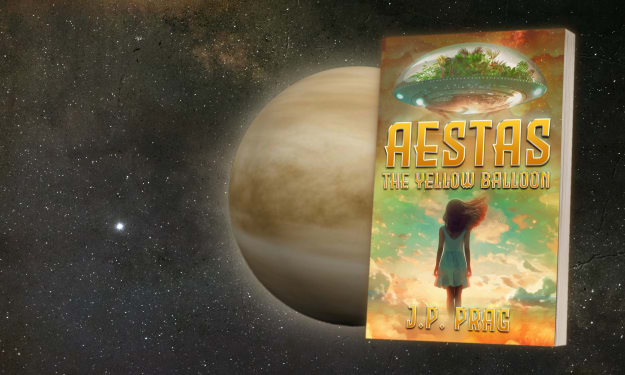Please Start Helping the Bees
The bee population is not looking too sweet (that was a joke because, you know, bees make honey).

In the past 15 years, the bee population has declined eighty-seven percent. Habitat loss rates are at an all-time low, mainly because of deforestation and excessive use of pesticides. Bees pollinate eighty percent of the flowers and seventy percent of food-producing plants in the United States. They keep our ecosystem running and plants growing, if we do not start creating an environment that bees will be able to thrive in now before we know it, there will be no bees left in the United States to pollinate our plants. Bees do not typically fly to new continents especially one surrounded almost completely by water, so we would need to have another country send us bees or go to another country and bring bees back, which is not very good for their health and would limit their ability to pollinate and reproduce when they actually arrive in America. If we would have to transport bees here it would still take a very long time to get them back to the population amount they were at before. We can start this journey to bring back a substantial amount of bees by planting insectary gardens, using smaller amounts of pesticides, and understanding what could happen to agriculture in the future if we do not help this cause right now.
How You Can Help Reinforce the Bee Population
You, personally, can contribute to the regrowth of the bee population by simply planting a “bee garden.” A bee garden is pretty much just your typical home garden, but with flowers that are catered to attracting bees. If you do not already have a home garden, it is really easy to dig out a small section of grass in your front or back yard to start planting flowers in or even you could even just plant flowers in pots and put them on your porch. Either way, the bees will be able to benefit. When planting flowers, it is good to plant at least three different types. Some good examples of flowers you can plant that will attract bees are: Bee Balm, Black Eyed Susans, Goldenrods, Lavender and many more. Avoid planting double headed flowers, because they do not produce as much pollen. You should leave a small space of unshaded, uncultivated soil so the bees can make nests in the ground around your garden. If you want to go above and beyond, you can add bee baths to your garden. They can be made out of a shallow dish with stones or twigs placed in them for the bees to perch on while they drink.
Pesticides have grown incredibly in the last four decades. As time goes on, the toxicity of pesticides is increasing, making pesticides now more harmful than ever before. Some pesticides can kill bees on the spot, while others may allow them to live for a couple of hours before they die. Some pesticides do not have any effects on adult bees but can damage or kill the younger bees. This prevents the bee population from continuing to grow. You should never use pesticides on your flowers; it will act as a deterrent and could potentially kill them as neonicotinoids will. Neonicotinoids are the most commonly known type of insecticide that will create brain damage in bees. This means that over time they become forgetful, forgetting the scents of flowers and even where their hive is located. This type of pesticide is typically used on farms and has had many terrible effects of ecology in general; this includes colony collapse disorder and the decrease of bird populations because of such a reduction of insects. Herbicides, which are meant to kill weeds, can be used if needed, but they should be used in extreme moderation. Herbicides are still not very good for the health of bees since it is taking away potential sources of food for them, but most herbicides will not kill them directly.
Bees pollinate 70 percent of the food we consume on a daily basis. Without bees, our country or maybe even the world will become very unstable. It is almost impossible to recreate the way bees pollinate our plants. There are too many plants in the world for someone to be able to physically go through farms and pollinate each plant in the way bees do. Even if we could do that on farms, the rest of the plants outside of farms would start to dwindle away. There are currently about six trillion bees in the world and we are very slowly beginning to realize what it will be like without them. There are other animal pollinators, but none are as effective as bees are, especially in the agriculture industry. Without bee pollinators, corn, wheat, and rice are about the only foods that would stay unchanged in the amount produced, because they are pollinated by the wind and not animals. We would not be able to live healthily without bees pollinating the fruits and vegetables needed in our everyday diet. Bees also pollinate cotton which is one of the biggest cash crops in America and one of the most used fibers when it comes to making clothes. There would most likely be a huge increase in the costs of clothes if the clothing companies had to start using other fabrics to make all of our clothes.
Bees are one of the most important insects in our day to day lives. We usually are not thinking about the effects of our actions when it comes to insects, because there always seems to be so many of them. It is easy to assume that killing one bee, spraying insecticides on your garden one time, or cutting down some trees will not have any impact on the hundreds of trillions of insects that roam Earth, but if everyone is contributing to these sorts of things, it is making so much more of an impact than we can even fathom. One spray of a pesticide on your garden can kill up to one hundred bees. Deforestation is causing a mass loss of habitat for bees and people are being too careless to realize the damage that is being done.
About the Creator
Kamari Grace
small town girl in a big world






Comments
There are no comments for this story
Be the first to respond and start the conversation.